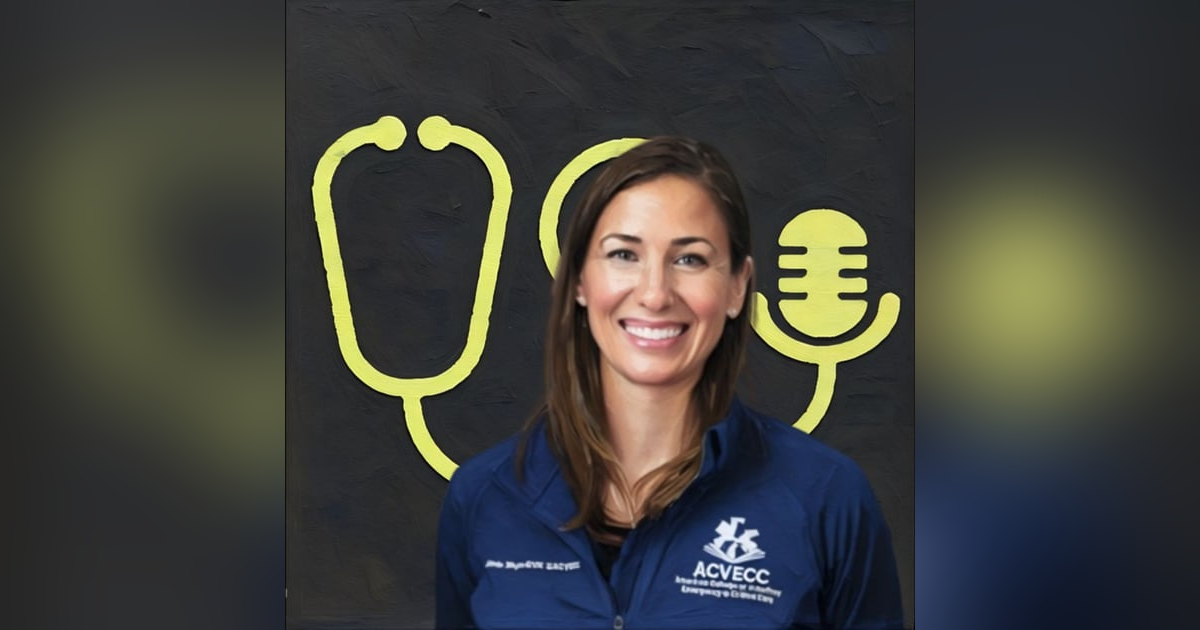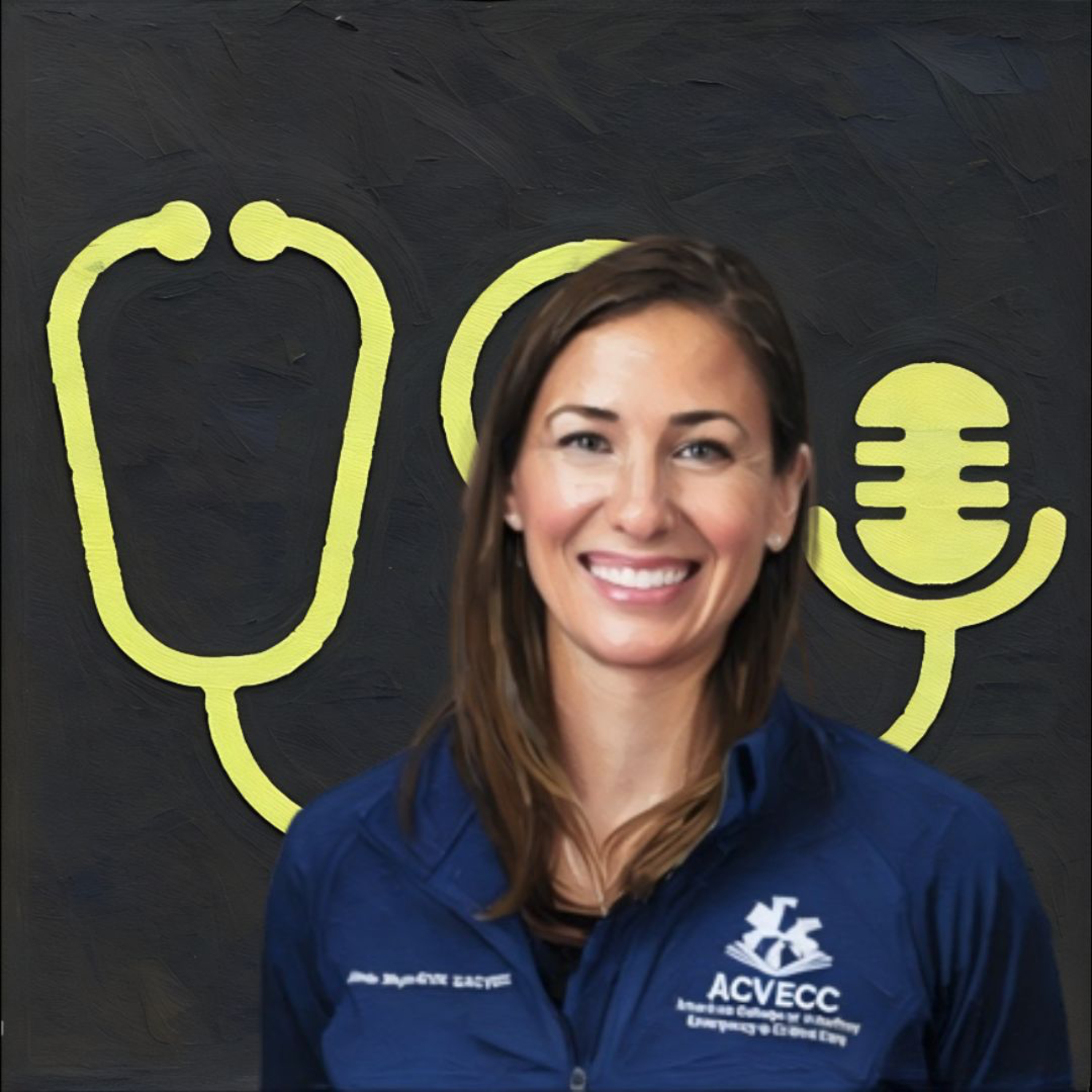146: Your Veterinary Sixth Sense: How It Works, And How to Teach It. With Dr Annie Wayne

Ever had a case where you just knew what was wrong before you even touched the patient - but if someone asked you HOW you know, you couldn’t explain it?
That almost mystical “sixth sense” we develop in practice - that’s exactly what this episode is about.
Our guest is Dr Annie Wayne - a criticalist, educator, and learning strategist—who’s been exploring naturalistic decision making: the cognitive model that explains how experts think in real-time, and how to pass that intuition on.
We talk about what separates expert intuition from novice reasoning, how to break down unconscious diagnostic processes, and how the right kind of mentorship can accelerate the path to expertise. Annie also shares her research on parenting and vet careers, challenging the stigma around pregnancy and parenthood during training.
Here’s what you’ll learn:
- What “naturalistic decision making” really means (and why it feels like a sixth sense)
- How experienced vets spot subtle signs that others miss
- How to externalise your gut feeling so younger vets can learn from it
- Real-world strategies for mentorship and better clinical teaching
- How to avoid the traps of lazy “shortcut” thinking
- How this framework builds confidence and reduces stress in new grads
- Annie’s personal take on parenting through training—and how to smash the stigma around pregnancy in vet careers
This isn’t just about clinical decision-making - it’s about how we teach, how we lead, and how we support each other in a demanding profession.
Lift your clinical game with our RACE approved clinical podcasts at vvn.supercast.com for more clinical confidence and better patient outcomes, or check out our Advanced Surgery Podcast at cutabove.supercast.com.
Get case support from our team of specialists in our Specialist Support Space.
Subscribe to our weekly newsletter here for Hubert's favourite clinical and non-clinical learnings from the week.
Join us in person for our epic adventure CE events at Vets On Tour. (Next up: Japan snow conference!)
Topics and Time Stamps
04:53 What is Naturalistic Decision-Making?
08:36 Expert vs Novice Thinking: Why Mentorship Matters
15:55 Risks of Shortcut Thinking and Balancing with Algorithms
19:11 Speeding Up Expertise: Can We Teach "Sixth Sense" Thinking?
22:47 Mentorship Models: Building Skills and Confidence
34:45 Can AI Help Naturalistic Thinking?
37:20 Parenthood and Veterinary Careers: Breaking Stigma and Building Support
What Is Naturalistic Decision-Making in Veterinary Medicine?
- Subconscious and Intuitive Thinking: NDM involves subconscious decision-making or thinking that one is not necessarily cognitively aware of. It is how experts know what they know, even if they cannot articulate the process.
- Real-World Application: This science, which emerged in the 1980s with Gary Klein as a pioneer, focuses on how people make decisions in high-pressure, uncertain, and emotionally dynamic real-world environments.
- Beyond Algorithms: NDM contrasts with traditional algorithmic diagnostics, which follow flow diagrams and sequential steps. Instead, NDM allows experts to seemingly "skip from step one to the last step magically".
- Core Components:Tacit Knowledge: This is intuitive, built-in knowledge derived from extensive experience. For example, an experienced vet might instantly recognise an aortic thrombus in a cat by a "very specific sound" because that sound has become ingrained in their brain through repeated exposure, even if they cannot consciously access how they know it.
- Seeing the Invisible: This involves noticing subtle cues, such as an animal's body language, that indicate its condition, which might not even be verbalisable. For instance, a nurse with a decade of experience could identify tick paralysis in an ataxic patient simply by looking at them, a skill that took another vet five years and hundreds of cases to approach.
5 Ways to Help New Grads Develop “Veterinary Spidey Sense”
- Implement Structured Mentorship Programmes and Explicit NDM Training Organisations like Ethos are developing mentorship programmes where both mentors and trainees are trained on what naturalistic decision-making is and how experts think. This involves creating a toolkit, providing resources, and fostering a culture of mentorship. A social scientist, Brian Moon, has partnered to help understand this science and develop training materials, including a game, to help people grasp NDM concepts and learn to ask the right questions. The aim is to accelerate the process of developing mastery and confidence, which traditionally takes years.
- Encourage Mentors to Externalise Their Internal Thought Processes A key method involves experienced vets verbalising the subconscious decisions and subtle cues they pick up on. For instance, an expert might instantly recognise an aortic thrombus in a cat by a specific sound, even if they can't immediately explain why. Mentors can articulate these "invisible" observations, such as body language cues that indicate a dog's condition, to make their intuitive thought processes accessible to trainees. This helps bridge the gap between an expert's automatic thinking and a novice's need for structured understanding.
- Utilise Targeted NDM Questions to Uncover Intuitive Thinking Experts in NDM have developed specific questions designed to unlock this type of thinking, both for mentors to explain their process and for trainees to develop it. Examples of these questions include: "What information did you ignore?", "What subtle cues did you pick up on?", "What did you notice that maybe I didn't notice?", "What are you tracking in the bigger picture?", and using a "pre-mortem" (imagining the worst-case scenario and how to avoid it). These questions help individuals break down complex situations and consider factors beyond algorithmic diagnostics.
- Normalise the Time Required for Expertise Development and Reduce Stress It is crucial to normalise the fact that expert-level thinking takes time and is not expected immediately upon graduation. By acknowledging that new graduates are "good learners" but not yet "experts," the stress associated with struggling with cases can be reduced. This approach helps new clinicians understand that difficulties are a natural part of their brain developing shortcuts, rather than a reflection of their competence or worth.
- Provide Access to Expert Insights through Diverse Learning Avenues Learning can be accelerated by leveraging various sources of expert knowledge. Clinical podcasts are highlighted as a way to "pick the brains of experts" who have seen hundreds of cases, sharing insights not typically found in textbooks and helping new grads make crucial connections. Additionally, interns training students and residents training interns are often described as the "best teachers" because they are closer to the novice perspective and can remember how to think like one, making their insights particularly valuable.






